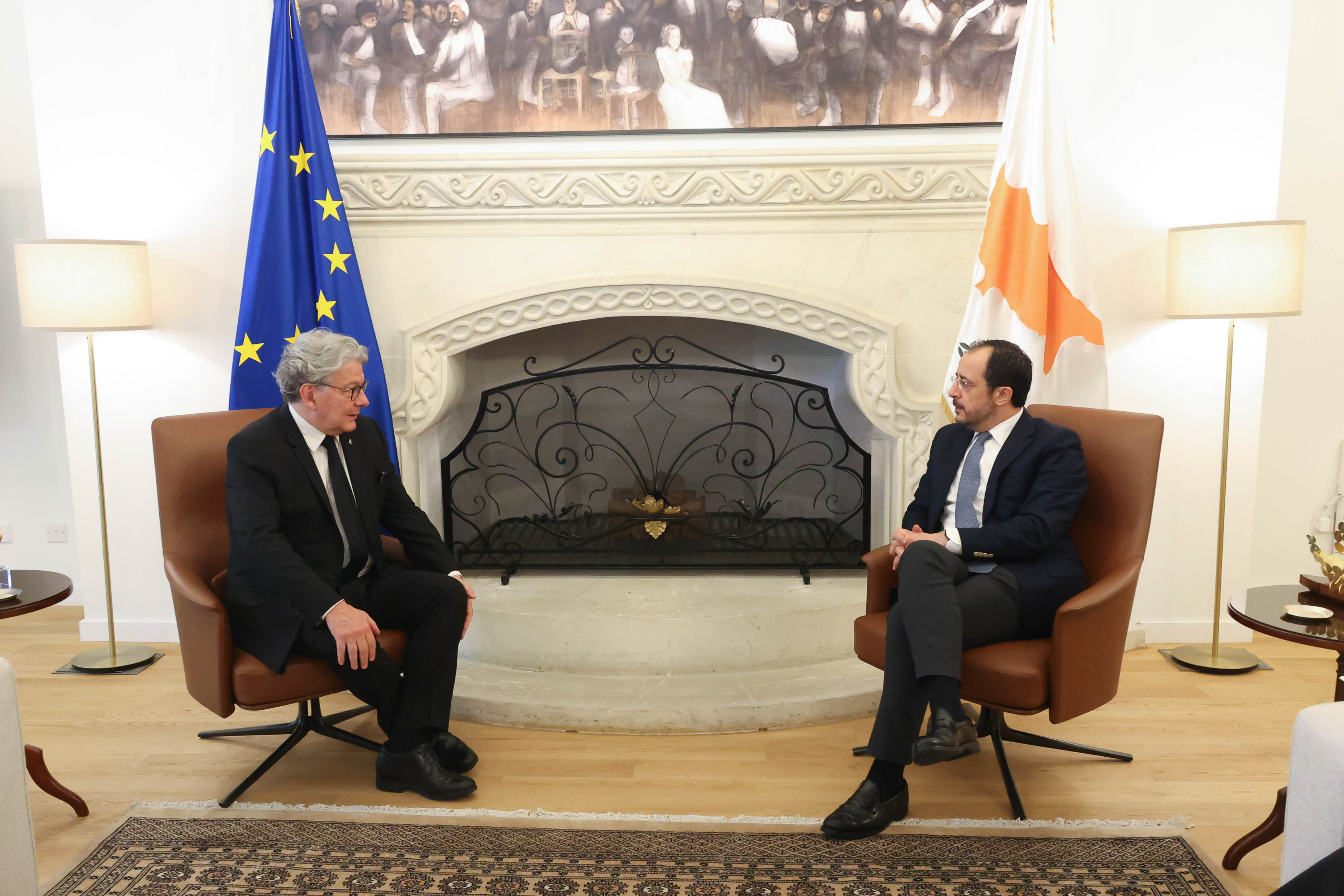How the EU could support Cyprus’ defence industry was discussed on Friday in Nicosia between President Nikos Christodoulides and European Commissioner for Internal Market Thierry Breton.
Speaking after the meeting, Breton said they discussed many issues and “of course we discussed the geopolitical situation.”
Breton said they also discussed the defence industry and how the EU can support this industry in Cyprus.
The commissioner also listed the European defence industry strategy “that we will discuss next week with the colleagues at the European Council” and energy issues within his portfolio.
“We discussed also energy and many issues, which are in my portfolio, and how we can support this initiative, which is extremely important for all of us in Europe, because it is playing a very important role, especially these days, and we are here to support it,” he said.
In a post on X, the presidency said they pointed out the need for “the strategic autonomy of the EU in sectors such as defence, security and energy.”
“In this context, specific project that could be carried out in Cyprus were discussed,” it added.
The president’s press chief said in a written statement that Christodoulides and Breton also exchanged views on items on the agenda of the upcoming European Council, including the package for new heads of EU institutions.
In an earlier video posted on X, Breton said he is “today in Cyprus, the easternmost member of our Union.”
“Its unique position gives it a significant meaning – especially in the current geopolitical climate – in terms of defence or energy supply,” he added.
Breton pointed out that “Cyprus has been participating in key EU programmes for defence industry and innovation.”
“These past few years, the discovery of natural reserves in the Eastern Mediterranean has elevated Cyprus’ role in the regional energy landscape,” he noted.
Breton also met with Energy Minister George Papanastasiou, who briefed him on the strategy and actions of the ministry regarding Cyprus’ double transition – energy and digital.
According to an official press release, Papanastasiou explained that this transition was fundamental to enhancing industry competitiveness and consequently the economy.
The minister outlined the three main pillars of Cyprus’ energy policy, which aim to address climate change and cut the cost of energy for households and businesses; the import of natural gas, the expansion of the use of renewable energy sources and measures to save energy; and the electrical connection of Greece and Israel.
Breton, the press release says, referred to EU economy competitiveness, the single market and EU industrial policy.






Click here to change your cookie preferences